9 Best Heaters for Tents: Safe Camping Guide (Gas, Electric)
So you love camping – but hate being cold? This is the guide you’re looking for. You’ll learn about the best heaters for tents. There is also a detailed guide to choosing (and safely using) tent heaters to stay warm. These tent heaters for camping will even make winter camping comfortable.

If you’re going camping in the winter, you’ll want to keep all that heat inside your tent. Here’s how to insulate your tent for winter camping.
Tent Heaters for Camping: Buyers Guide
Just because it’s winter doesn’t mean you have to stop camping! Don’t miss out on outdoor fun because of the snow and the cold! Instead, buy a heater.
Here’s how to choose the best heaters for tents and extend your camping season.
There are three main sections to this guide:
- Combustion tent heaters: Gas (propane, butane) and Wood fuel
- Electric tent heaters: Perfect for backyard camping and campgrounds with electric service
- Guide to Tent Heater Safety and Buyers Guide
I should mention, that this is a pretty big guide. If you’re just looking to buy the best heater, I’ve put together this quick guide. Here are our top picks for the best gas and electric heaters for tents:
 Our Top Pick: Gas Tent Heater
Our Top Pick: Gas Tent Heater
If you want a heater that burns clean, the Mr. Heater Buddy is 100% clean burning.
Another safety feature is the auto shut-off, just in case the product gets tipped over in your tent.
In addition, this heater will shut off when the pilot light goes out, or if low oxygen levels are detected.

 Our Top Pick: Electric Tent Heater
Our Top Pick: Electric Tent Heater
The GiveBest Mini Space Heater has two heating settings, low at 750W and high at 1,500W. And it has one cool setting – with the fan only.
It comes with two auto shut-off features:
- overheat protection that will auto shut off the unit if it reaches 158 °F (70°C)
- auto-off feature if it tips over.
Check out this electric mini space heater
There is also a thermostat, so you can control the temperature inside the tent. The heater has a 3-second quick heat function, so you don’t have to wait for it to warm up.
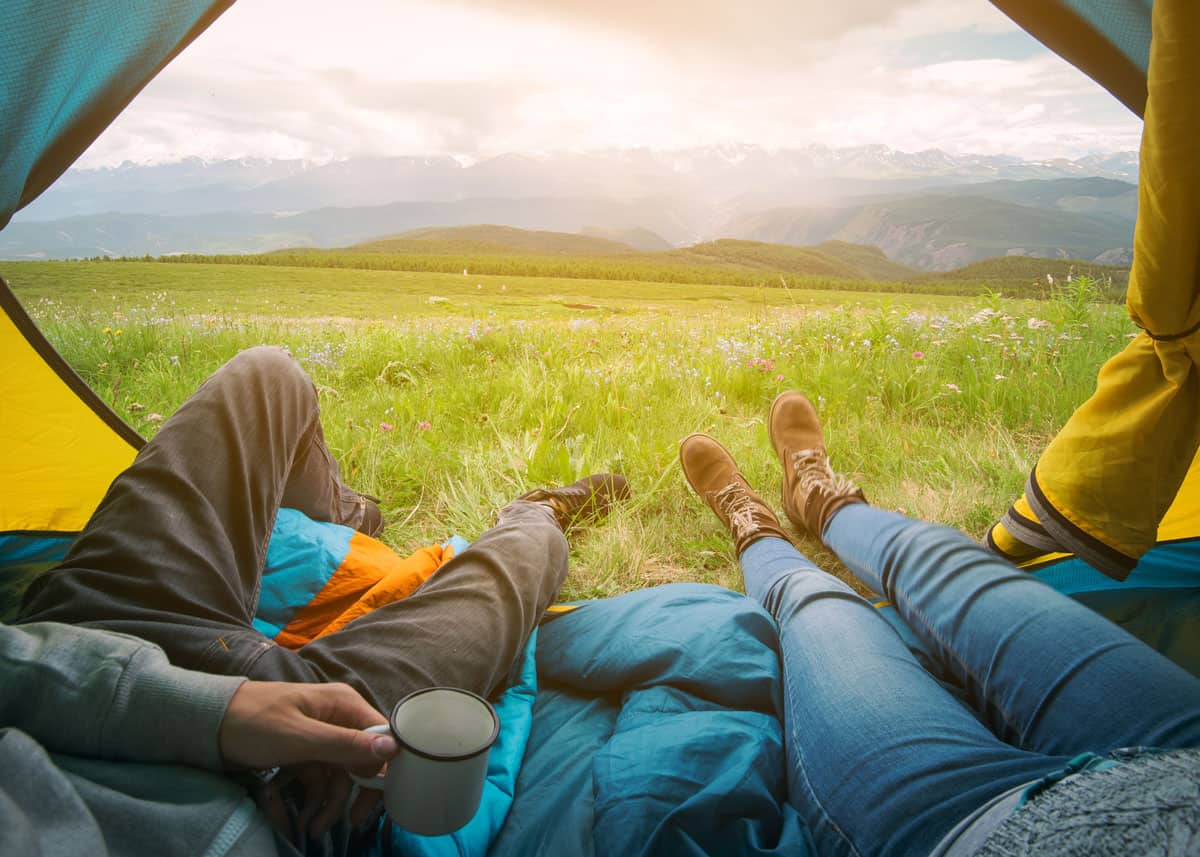
6 Heaters for Tent Camping (Gas and Wood)
In the first section, we’ll cover nine heaters for tent camping in the winter – or at least in colder temperatures. These eight heaters all burn either gas (propane or butane) or wood.
Let’s get started!
1. Mr. Heater Portable Radiant Heater
The Mr. Heater Portable Radiant Heater is one of the best tent heaters for camping. This is my favorite tent heater – I’ve owned mine for five years. And it has kept us toasty on more than a few cold nights.
Check current price on Amazon or Mr Heater.
This portable heater has auto shut-off if it gets tipped over. And it shuts off if the pilot light goes out or it detects low levels of oxygen. When using the small propane cylinders on low, you will go through 1 container of fuel every 4 hours.
Why You Want It: The heating surface on this radiant heater is huge! That means maximum warmth in minimal time!
2. Mr. Heater Little Buddy
Another of the best heaters for tents is the Mr. Heater Little Buddy. If you haven’t figured it out yet, Mr. Heater is a reliable company that makes dependable, quality products.
This heater is smaller than the Radiant, and is made to heat tent space up to 95 square feet. Therefore, the Little Buddy would be great for one-person, and small two-person tents. Not only that, but this Mr. Heater product can be used to heat tight spaces due to its small stand and 45 degree heating angle.
Check current price on Amazon or Mr Heater
This Mr. Heater has a tip-over switch, auto shut-off, and ODS (automatic low oxygen shut-off system). The Little Buddy boasts up to 5 ½ hours of running time, odor-free.
Why You Want It: If you have a hard time working electronics, don’t worry. This Mr. Heater only has an on-and-off switch!
3. Texsport Portable Outdoor Propane Heater
If you want a durable tent heater for camping made of metals, look no further than the Texsport Portable Outdoor Propane Heater. In fact, this product is made of copper and steel, and finished with stainless steel.
Check current price on Amazon or Walmart
This heater offers up to 2,890 BTUs. At the lowest setting, the fuel will last up to 5 hours. The only downside to this heater I see is that the head is not adjustable, so it will forever be at its 45-degree angle.
Why You Want It: The Texsport weighs 1 pound, so it would be a great lightweight heater to take backpacking.
4. Mr. Heater Buddy
The Mr. Heater Buddy is another one of the best tent heaters for camping in the winter. With a BTU rating of 4,000 to 9,000, this heater can be used in spaces up to 225 square feet.
Safety features include auto shut-off in case the product gets tipped over, when the pilot light goes out, or if low oxygen levels are detected. With one panel running on low, you can get anywhere from 8-10 hours of heat.
Why You Want It: This big guy is indoor-safe. That means you can use your Buddy in your tent, and your shop or shed!
5. Texsport Sportsmate Portable Propane Heater
Back to propane heaters for tents, the Texsport Sportmate Portable Propane Heater is great for not only camping, but other activities needing an on-the-go heater as well.
Check current price on Amazon or Texsport
The Sportmate is made primarily of stainless steel and aluminum. This heater has a sturdy foot base and extends 10.5 inches into the air. Additionally, a safety grid surrounds the heating element. On low, this portable propane unit can run for up to 8 hours.
Why You Want It: Because it’s super light, and comes with a molded plastic cup holder – just in case you want to keep it nice and close on those cold campsite mornings.
6. Mr. Heater MH12B Hunting Buddy Heater
This is the most popular portable propane heater in North America. It produces 6000 to 12,000 BTU’s and connects directly to a 1 lb propane cylinder. Perfect for heating enclosed spaces up to 300 sq. ft.
Comes with an Oxygen Depletion Sensor (ODS) and tip-over safety shut-off, features will keep you safe and give you peace of mind.
Bonus: TRM Portable Military Camping Stove (Wood)
The first and only wood stove on the list is the TRM Portable Military Camping Stove. Do not attempt to use a wood stove unless you have a large tent such as an outfitter’s tent. You also need to have a flue for adequate ventilation.
Why You Want It: This heat source includes foldable grates to dry smaller items such as socks, shoes, and gloves. If you are climbing, hunting, or backpacking party, you might want to consider using a wood-burning stove in an outfitter’s tent.
Is rain in the forecast? Here’s how to set up your tent in the rain.
3 Best Electric Tent Heaters
If you’re camping in your backyard, a heavy gauge extension cord is all you’ll need to make these next three options work.
Or if you’re staying at a campground with electrical service on your site, these heaters are a great idea. Don’t forget the extension cord.
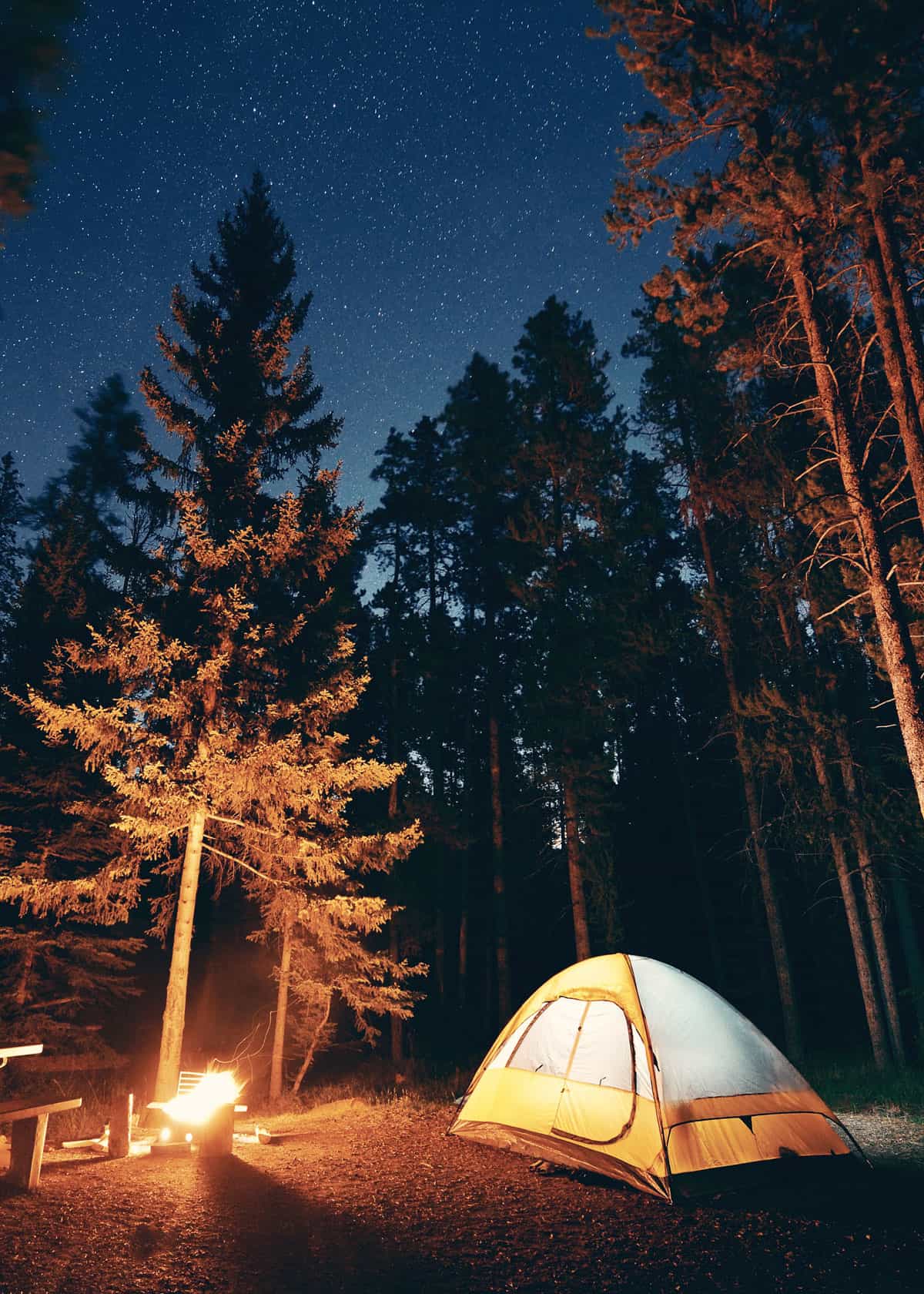
Here’s how to make coffee while camping
7. GiveBest Electric Tent Heater
The GiveBest Mini Space Heater has two heating settings, low at 750W and high at 1,500W. And it has one cool setting – with the fan only.
It comes with two auto shut-off features. Overheat protection will auto shut off the unit if it reaches 158 °F (70°C) and auto-off feature if it tips over.
Check out this electric mini space heater
There is also a thermostat, so you can control the temperature inside the tent. The heater has a 3-second quick heat function, so you don’t have to wait for it to warm up.
Why You Want It: If you prioritize safety and you have access to an electrical outlet.
8. andily Compact Ceramic Space Heater
Here is another mini electric heater, this time from andily. This mini ceramic space heater is compact (just 9.64″ high), electric, and lightweight at 2.76 pounds. And it can warm tents up to 190 square feet.
There are two heating settings, low at 750 Watts and high at 1,500 Watts. Additionally, there is also a cool setting in case you get a little too warm too quickly! This comes with two safety features: overheat auto-shutoff and tip-over auto-shutoff.
9. Stanley ST-SSSA-120 Heavy-Duty Electric Heater
This 1500 Watt / 12.5 amp heater easily heats up to 165 sq. ft. with 5100 BTUs. This portable space heater has a 2-setting thermostat. The built-in tip switch shuts it off immediately if it gets knocked over.
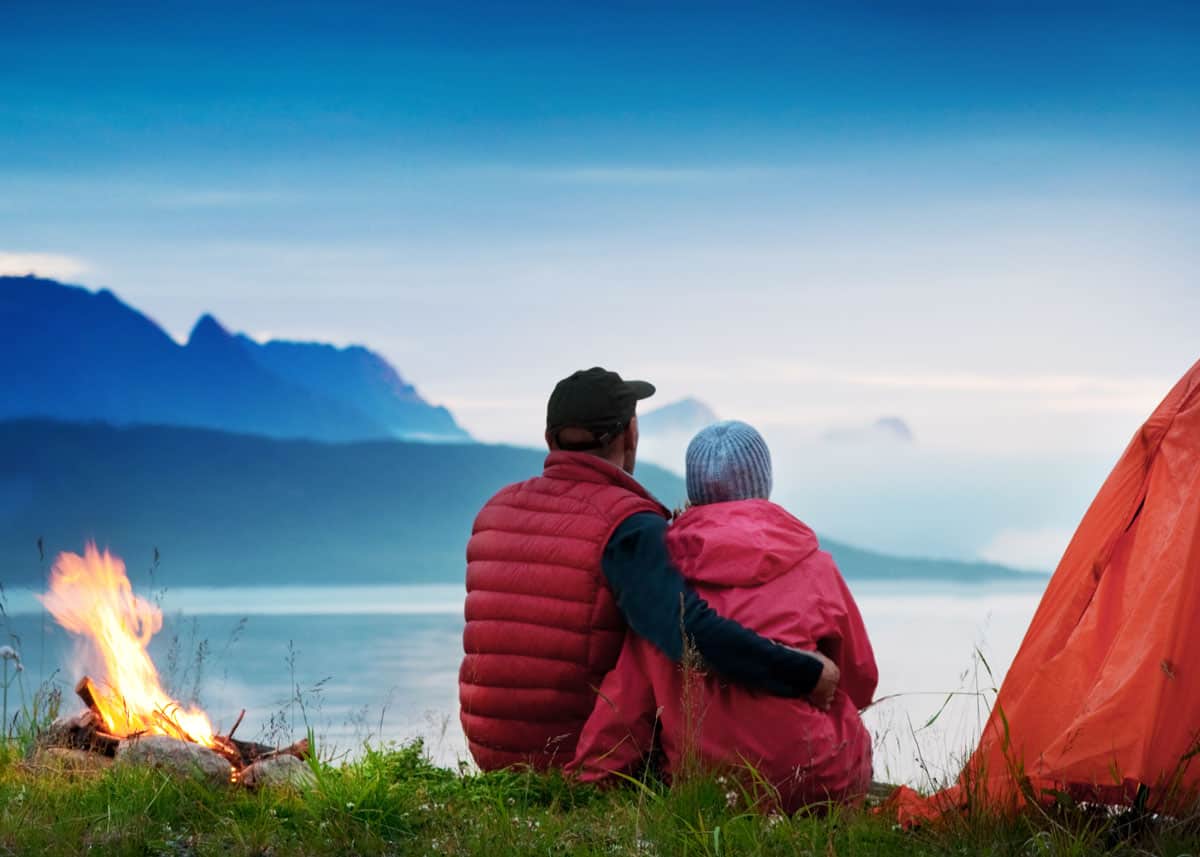
Check out our full Guide to Winter Camping
Staying Safe: A Guide to Safe Heaters for Tents
In this section, I’ll cover what to do and what not to do with the 3 primary types of heaters for tents: catalytic propane gas heaters, electric heaters, and portable stoves.
Additionally, I will tell you what safety features to look for when shopping around.
6 Important Tent Heater Safety Features
- You Want a Tip-Over Switch: This switch will automatically turn off your electric heater if it tips over. Stuff happens. Your heater could be tipped over when the last person leaves the tent. You might be sleeping with your heater on (shame on you), and you roll. It is better to be safe than sorry.
- Automatic Cut-off is a Necessity: This will ensure you don’t fall asleep with your heater on! Although many manufacturers technically rate their heaters for overnight use, most outdoorsy people I know will tell you not to chance it. An automatic cut-off will turn your device off after a certain amount of hours of uninterrupted use.
- Overheat Protection: To keep the heater from getting too hot, you will want to look for an overheat protector feature. When the internal working mechanisms become too hot, a temperature sensor shuts the whole thing down. This potentially life-saving feature is available on both electric and propane gas heaters.
- Are Other Appliances Plugged in? If so, you could trip the wire and cause a fire. For your safety, try to plug in one appliance at a time. Heaters for tents should never be plugged in with anything else.
- How to Operate: The following instructions are not meant to replace your owner’s manual. Only the manufacturer’s instructions should be followed to a T. This is a quick safety overview on how to operate your heater.
- Follow the Manufacturer’s Instructions: Do not use the heater in any way other than intended. If a heater says it is for outdoor use only, it is for outdoor use only! Stay safe and always follow the manufacturer’s instructions.
Are propane heaters safe in a tent? Here are 7 tips for using a propane heater in your tent.
1. Tent Heater Size
Heater Size: Take the area of your tent into account. From the size of your tent, you should be able to tell if you need something compact, or something larger.
If you have a small tent, you won’t want the largest, hottest heater.
Figure Out How Many BTUs You Need: BTU stands for British Thermal Unit. The number of BTUs required to heat your tent can be found in a few steps:
- Multiply together length x width x height to find the cubic feet of the tent.
- Subtract the temperature outside of your tent from the desired temperature of the inside of your tent. This will give you the temperature your heater has to work to rise to.
- If measuring in Fahrenheit, you will need to solve the following equation: Cubic Feet x Temperature Increase x 0.133 = BTUs needed
- If Celsius is your unit of choice, figure this out: Cubic Feet x Temperature Increase x 0.2394 = BTUs needed
If math isn’t your strong point, head over to this BTU calculator.
2. Gas Tent Heater Safety Concerns
- Stance / Stability: Often the tent floor isn’t the most level place. That’s why you should choose the most stable heater you can find.
- Catalytic Propane Gas Heater: Propane gas heaters for tents are much safer than they used to be. Older models used to use full-on combustion and had a tendency to cause flames at best, and explosions at worst. What’s changed? The newer heaters use catalytic combustion, which when the propane fuel and oxygen create a reaction that can power you warm. The heat you feel is emitted through infrared rays.
- Figure Out How Much Propane You Need: If you plan on using your heater for more than one day in the winter wild, you will need to figure out how much propane will be necessary to keep everyone warm. If you are going on a long trip, you can bring a large, full propane tank with you to ensure you don’t run out of fuel.
3. Electric Tent Heater Safety Concerns
- Electric Heaters: One major drawback of electric heaters for tents is the fact they must be plugged in. These hookups are often only available at RV sites. This wouldn’t be so bad if no RVs were at the site. If a campsite has its electricity turned on in the winter months, it most likely serves RVs year-round.
- If you have to use an extension cable, purchase a heavy-duty cord to minimize the risk of fire. Additionally, you will need to keep drinks, flammable materials, children, and pets away from the front of the hot heater.
- As long as you check the weather report or provide your own power source you should be fine using an electric heater. These are much cheaper than catalytic propane gas heaters for tents.
4. Portable Stove Safety Concerns
Portable Stove: Portable stoves are great for keeping a large space heated. Also known as wood-burning stoves, these are great tent heaters for camping.
- You can only use these types of stoves in tents that allow for maximum ventilation. One tent type is the classic tipi style, but any tent with a flue will work. If you are worried, you can purchase a carbon monoxide detector and place it close to the people in your tent.
- Additionally, the canvas used in the manufacturing of the tent must be flame-retardant to resist those runaway sparks. Wood-burning stoves are great because there is no need to worry about power outages or running out of gas.
- As long as you have wood you are good to go. If this is your first time using a portable stove, follow all directions for set up exactly as they are written. Always take all safety precautions suggested in the manufacturer’s instructions.
It is best to only use your portable stove when someone is awake.
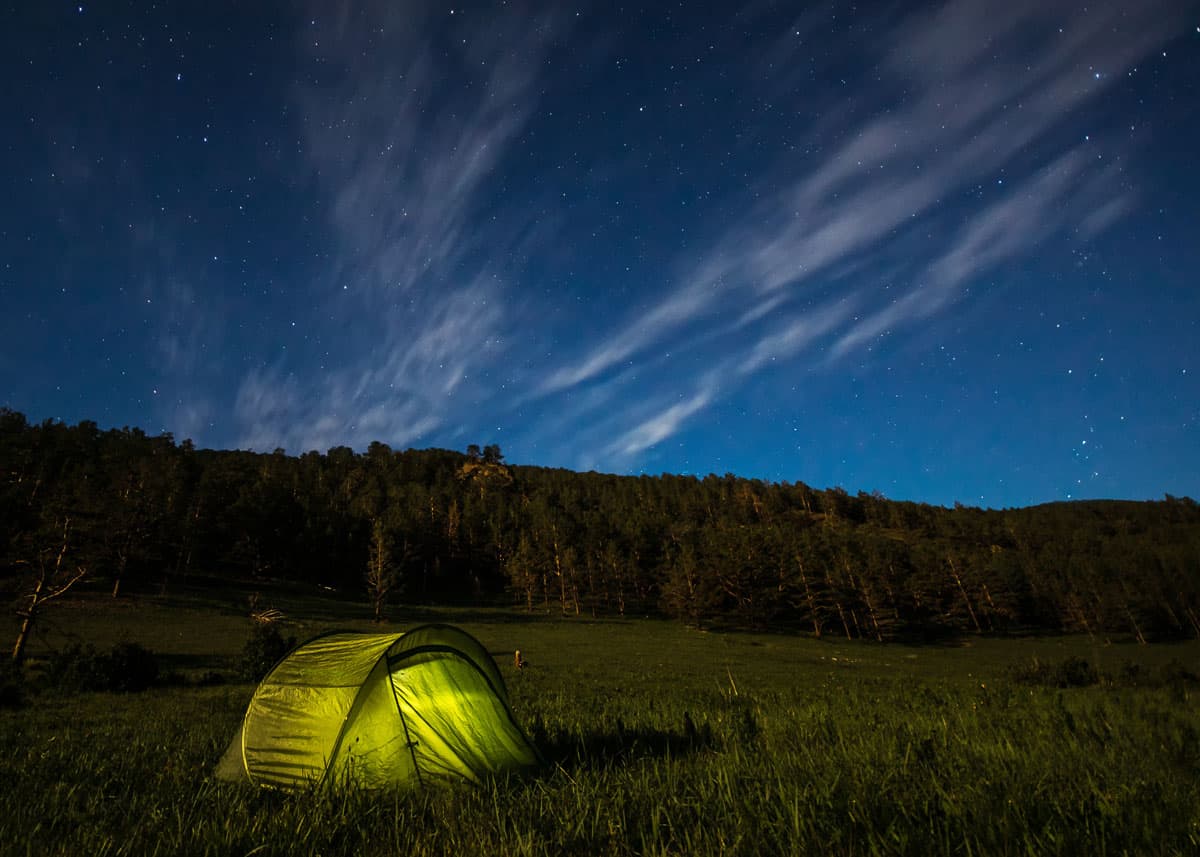
Read more about the best camping gear for beginners
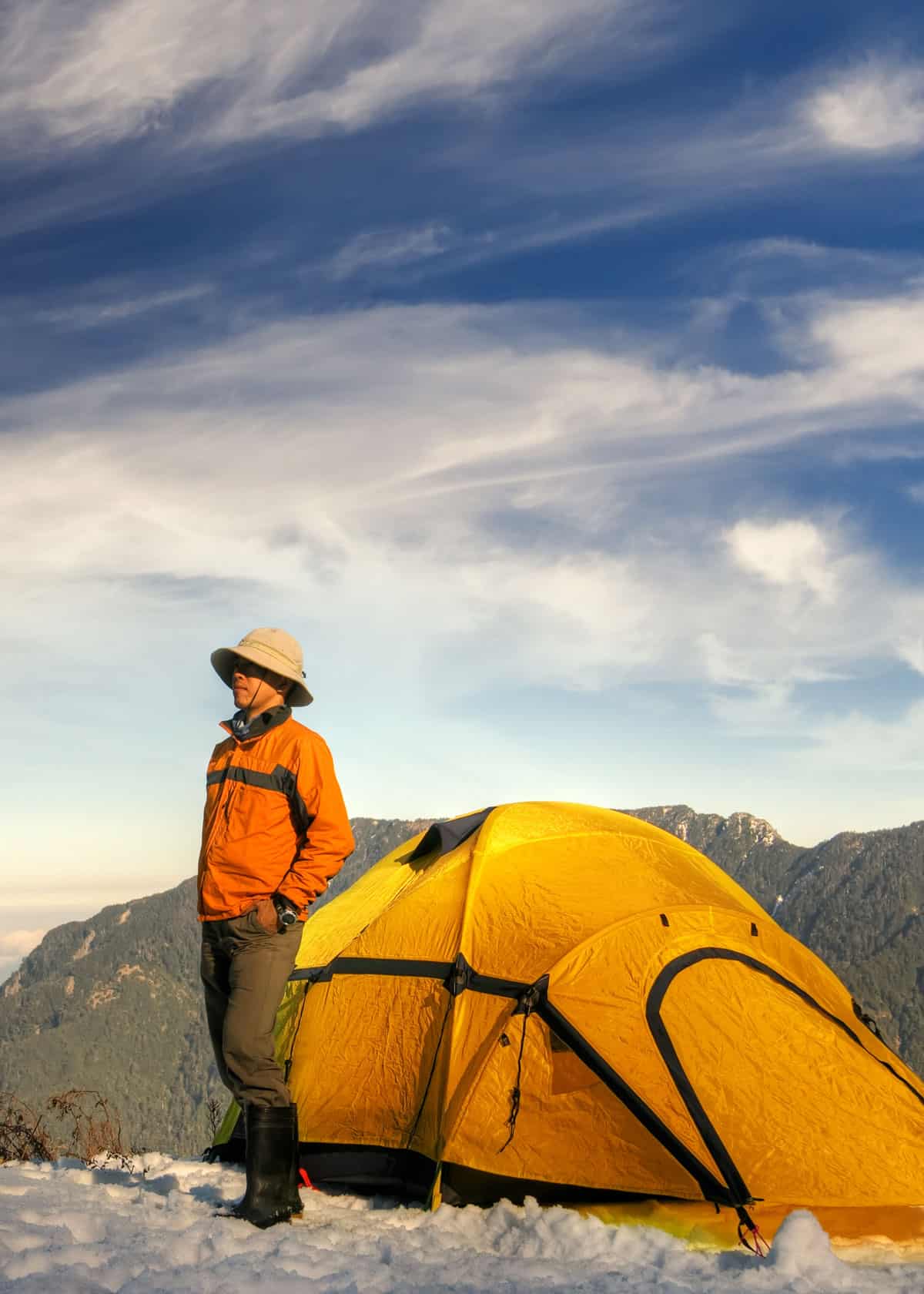
Stay Warm, Stay Safe, Stay Fun
Some of the most beautiful snow-covered sites to be seen can only be viewed in the cold. When the weather outside is frightful, you can feel delightful inside your tent.
All you need is a heater designed with safety in mind to keep your trip fun and warm. After choosing one of these 12 best heaters for tents, camping year-round will never be out of the question again!
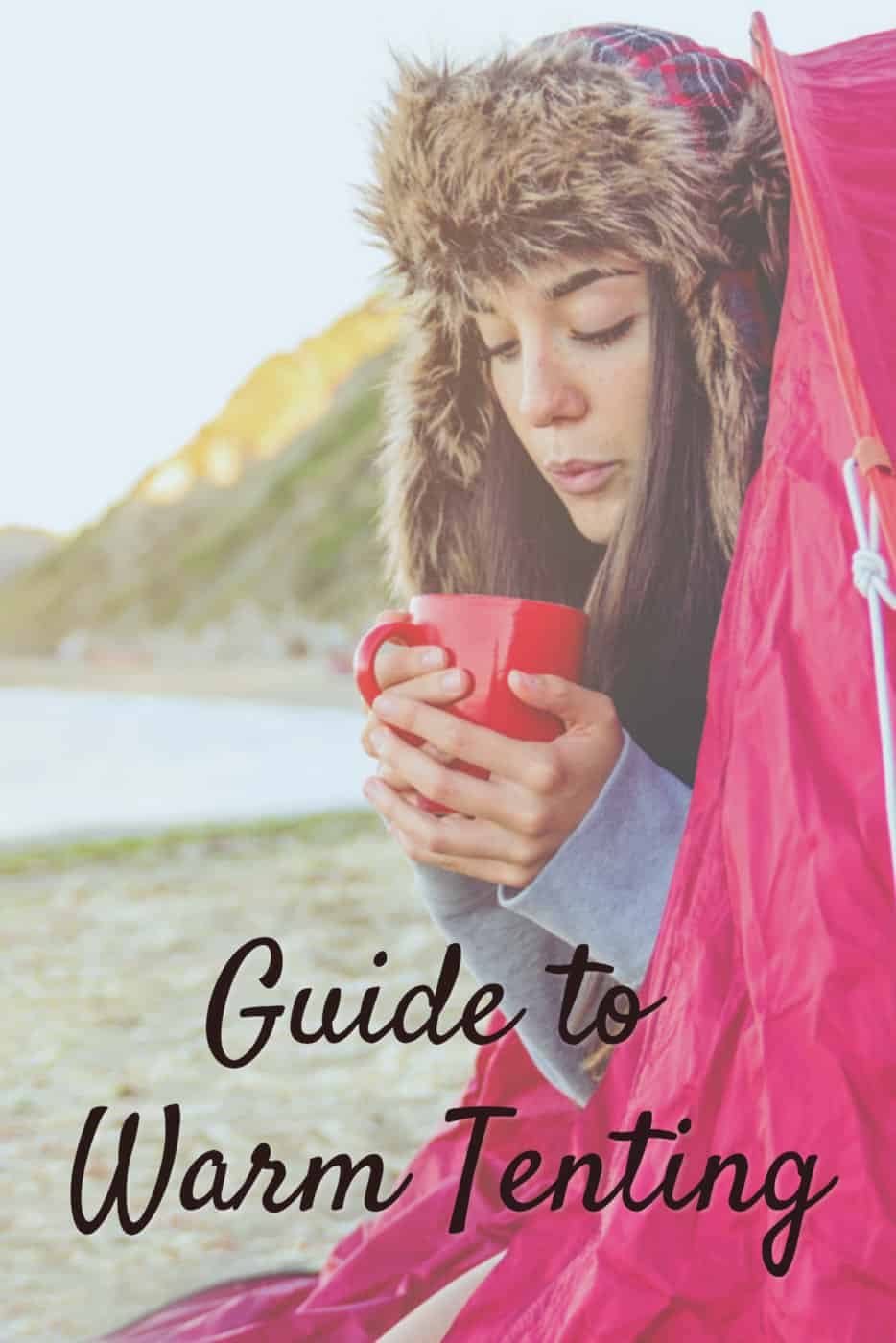
How do you stay warm while tenting? Let me know in the comments!








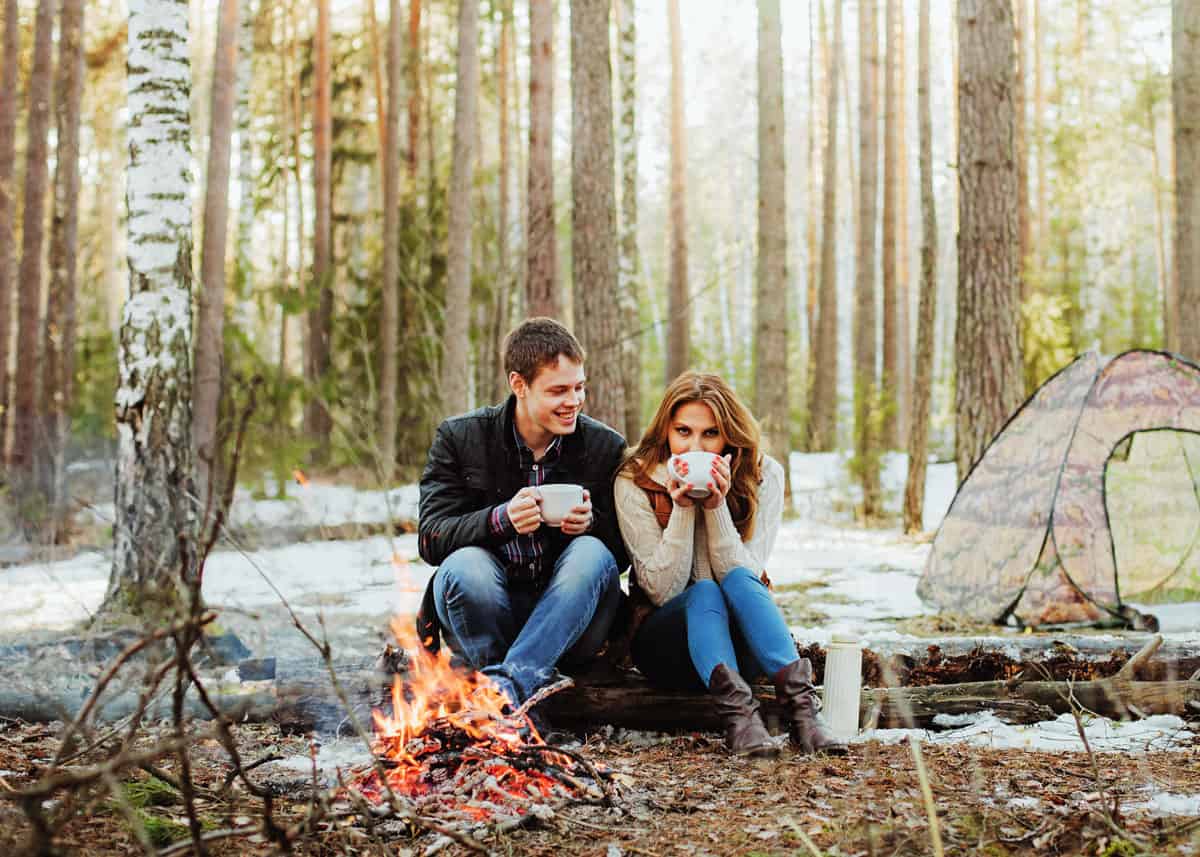


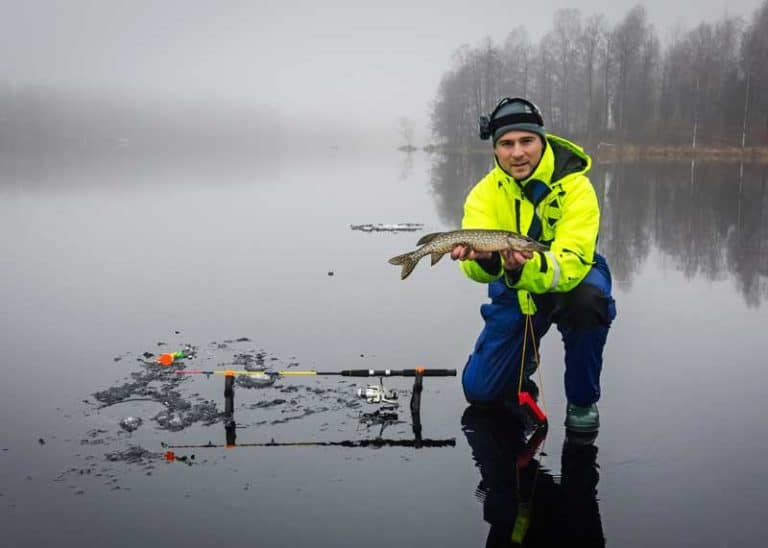
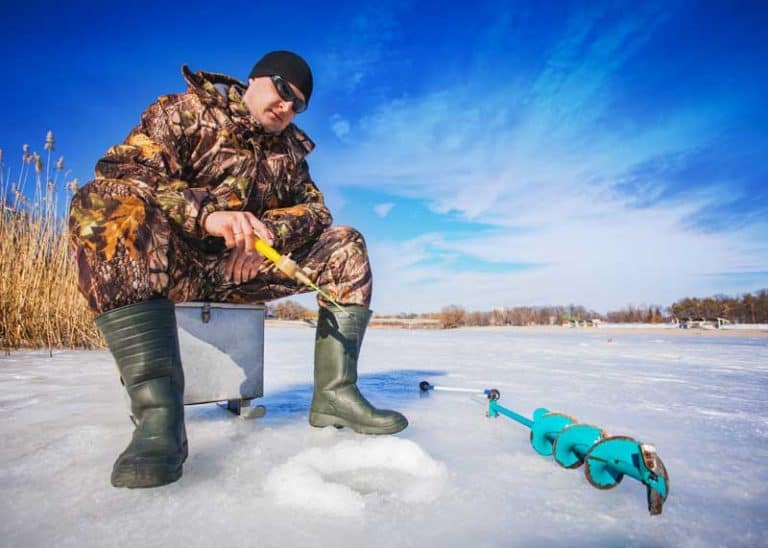
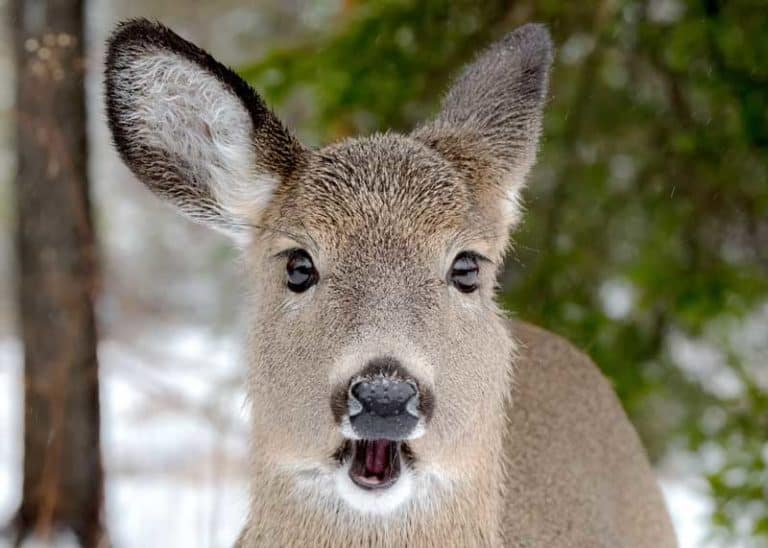
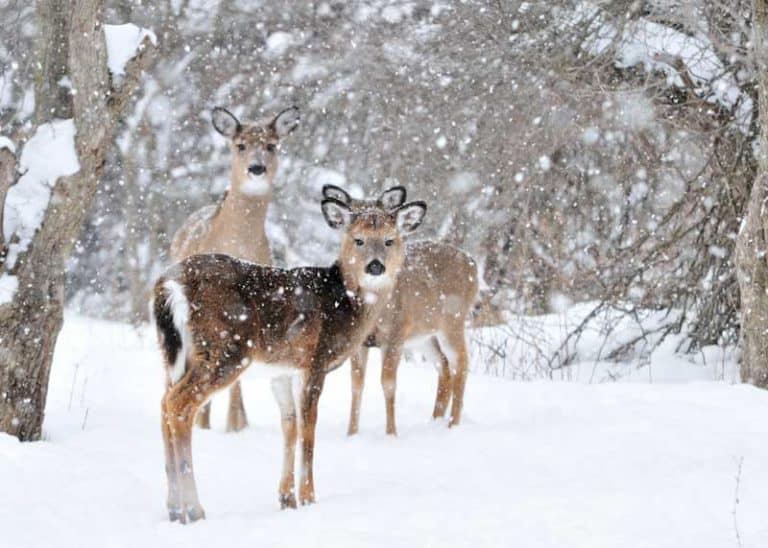
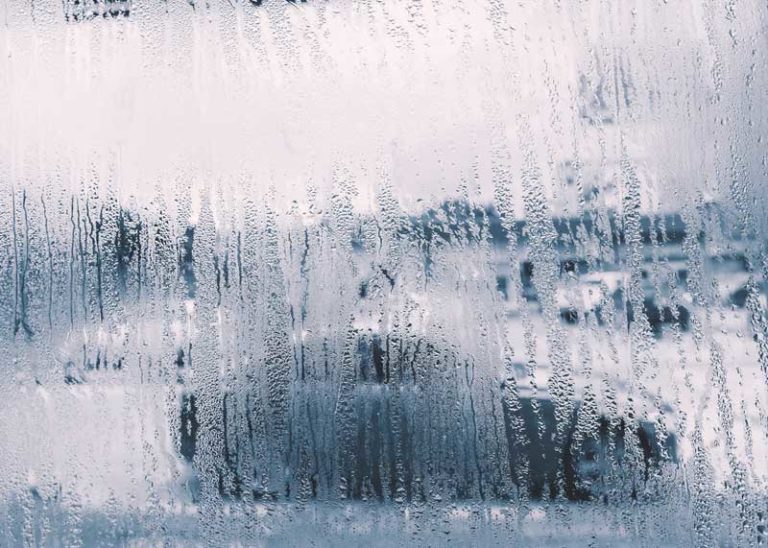
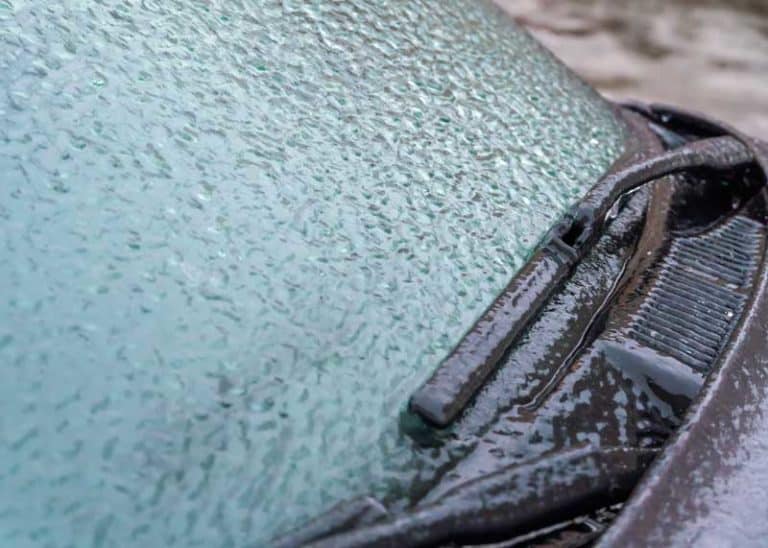
Based on your reviews I bought a Mr Heater Portable Buddy Radiant Heater and have just unpacked it and read the enclosed operating instructions. It has warnings all over it not to use it in an enclosed area but I bought it to use in a tent. Now I’m unsure what to do. Can you please help me decide?
Cathy
There seem to be two versions of the similar model. We have one that says it’s safe for indoor use – but similar looking Mr Heaters sold at the hardware store advise not to use indoors. I’m looking into it.
Cathy,
There are just too many conflicting viewpoints of CO2. YouTube testers have a variety of variables: size of heater, size of room, ventilation and height of CO2 detector that lead to varying results. Bottom line is we breathe 20.9% oxygen and deficiency starts at 19.5%. This is easier to determine with a ~$600 ‘professional’ (there are cheaper versions that may or may not be as reliable) multi-meter. If you can justify spending that much, great; I would still proceed with caution. I’m not a doctor/scientist/astronaut- I have just determined this from hours of research when I should have been doing more productive things. I own two Mr. Heater Big Buddy heaters that I run in a 1,200 sq. ft. shop. Does great if I’m standing next to it. Going to install a small exhaust fan just to be on the safe side. I’m not comfortable with being in an enclosed space with these bad boys running. Too much of a risk with me already sharing oxygen with my wife and three dogs. Hope this helps.
Hello everyone,
This thing really saved my butt and perhaps marriage. Tried to sneak in a late season camping trip in Flagstaff, AZ a few weeks ago only to find the temps dropping into the ~25 range as a low. Dog bowls and all bottled water were frozen SOLID each morning. As a tent camper, I was a bit worried about leaving this thing on all night. I bought the Mr. Heater Buddy Series Hose Assembly – 10-ft., Model# F273704 and had a full-sized tank of propane outside my tent. A major worry was the warning that this heater may not work above 7000 feet elevation and where we were was 7300. Regardless it worked like a charm and I even pre-heated the tent before we called it a night and left it on all night while we slept. I did pick up two CO2 alarms just in case because I’ll admit we did not have a ton of ventilation. Not even a chirp from them nor did I ever smell any incomplete burning or propane smell. Needless to say, we woke up every morning nice and toasty and slept very well throughout the night. After 4 nights the full-sized propane tank was not even touched speaking tot he efficiency of this unit. Lighting is easy but if using the 10′ hose don’t forget to hold down the pilot light for about 30 seconds until you smell propane. There is a lot of air in that line that you need to bleed out.
Very helpful responses to the article. Just one comment CO2 is Carbon Dioxide, the bad stuff that kills you in your sleep is CO or Carbon Monoxide. We are heading up to Yosemite this weekend and possibly heading into storm with lows in the 30’s. Living in So Cal has made me soft so I am looking at using this typeof heater. Thank you for your blog and for the responses as well.
Hi just a correction the tooluze butane heater burns 100 GRAMS per hour not 100 mg as stated in the article. 100 mg=1 gram
Thanks for catching this – I’ve fixed this in the article.
Hi Bryan, I was just reading your article and found it very informative.
I have been developing a safe candle heater for small spaces, I would be very grateful if you would visit my website and have a look.
If you are interested and want to know more please let me know.
Kind regards
Vince
Sure, always happy to take a look. Let me know.